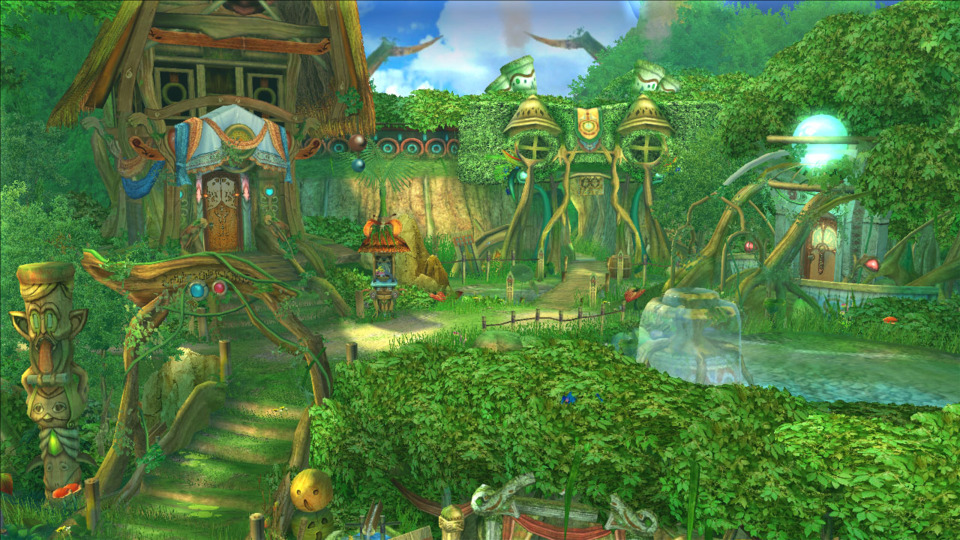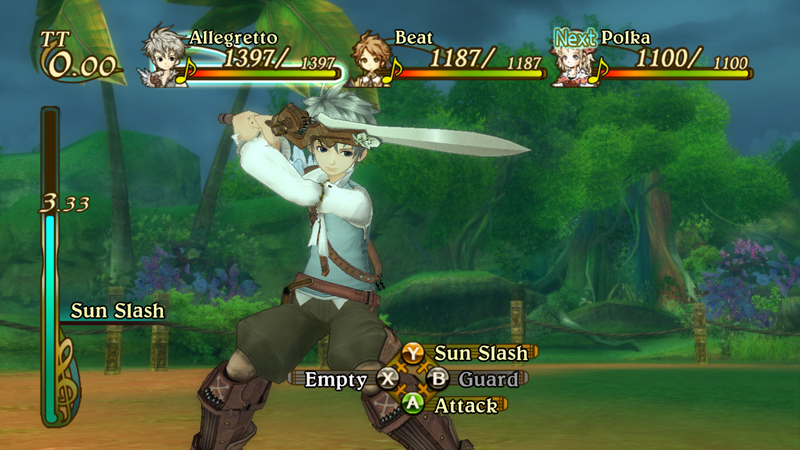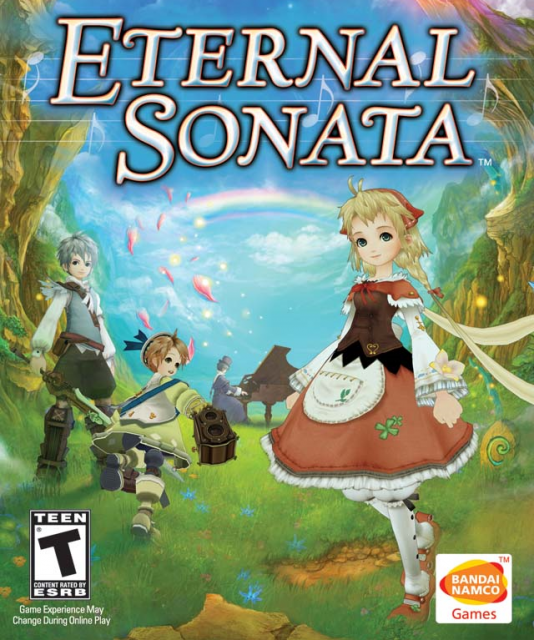A wonderful escape into a world of color, music, and simple charm
Eternal Sonata, from Japanese developer tri-Crescendo, is a game that offers you a world of fantasy, wonder, and undeniable charm. Having mostly played only western RPGs, a JRPG like this was bit of a change and new experience for me, and one that I must say I enjoyed quite a bit.
The first thing that you’ll notice when you boot up the game is of course the visuals. This is easily one of the most beautiful games that I have ever played, and the colorful vibrant world will immediately charm you. In the midst of the many brown and gray shooters on the market, a painted paradise like the one found in Eternal Sonata is a welcome pleasure. In fact, when I first began the game, with the combination of the bright cheerful landscape and the lighthearted music, the tone reminded me heavily of something from The Legend of Zelda. However, as the game and story progressed, the world began to come into its own with its slightly more mature elements revealing themselves.

The story of Eternal Sonata is bit difficult to summarize because there are two narratives taking place in the game. In one respect, there is the composer Frederic Chopin, who lies dying on his deathbed in Paris, and on the other hand is the world of Chopin’s dream in which the game itself takes place. This dual narrative is interesting to see unfold and it allows the game to explore death, morality, friendship, betrayal, and other themes by jumping back and forth between the two worlds. However, while this dualism is an asset to the game, it is also one of my larger issues as the game wears on.
The story within Chopin’s dream world begins relatively simply. You begin by playing as Polka, a young girl who lives with her mother and sells Floral Powder, a medicine of sorts, as a means to support them both. However, in the kingdom of Forte where they live, there has been a heavy tax placed on the powder, so Polka decides to set out to Castle Forte to meet with Count Waltz and appeal to him to lower the taxes. Concurrently, you take control of a young Robin Hood of sorts, Allegretto, who along with his young friend Beat, steals bread from the local shops so that he can feed orphaned children living in the sewers of the city. Eventually, it is revealed that bread too has a high tax levied on it, and that the children cannot afford it because of this. Like Polka, Allegretto and Beat set out for Castle Forte to speak with Count Waltz. The three of them eventually meet up, and it is at this point that the adventure really begins. You will travel to lots of different beautiful environments, and meet lots of different interesting characters, many of whom will join your party. However, as the game progresses, the story begins to become unfocused. Instead of weaving the over-story of Chopin’s final moments into the story within his dream, the two seem to take turns in exposition and the story as a whole becomes somewhat confusing and it begins to feel disjointed. While I appreciate the deeper exploration of Chopin’s story, I wish they could have woven it more delicately into the main quest within his dream, for that’s when I feel the game had its most focus, and when I felt the most purpose in what I was doing.

Another part of the game that is both a strength and a weakness is the combat system. The combat is sort of a mixture of real-time and turn-based combat. Your characters and the enemy characters take turns in combat, but instead of picking a spell or single attack, you are given an action meter that depletes with time. As soon as you begin moving your character, the meter begins to countdown and you’ll have to think fast to make your attacks and use your items wisely. The combat is lent some depth by a light/dark system whereby depending on whether you’re standing in light or in a shadow, you and the enemy will have different attacks available and perhaps even different forms. In addition, as your party levels up, various parts of the combat change slightly, such as the time on the action meter shortening. There is also a combo system, whereby you can build up a certain number of hits, and then use them to strengthen one of your special attacks. While these elements do lend the combat some depth, the game is simply too easy, and many encounters turn into a simple pattern of basic attacks followed by a special attack. In addition, there are too few enemy types. When I first encountered fish in a swamp area it made sense, but to see them again in a volcano and a snowy forest was simply confusing to say the least.
Despite the issues I have with the game, I have to say that as a total experience I really enjoyed Eternal Sonata. The story could be unfocused and long-winded, the combat could be easy and repetitive, and there were some backtracking issues, but on the whole I really like this game. The bright vibrant world is such a nice change from the usual competition to see who can render the most shades of gray, and the story, while not without its issues, is refreshing and obviously had care put into it and its message – something that I very much appreciate. Overall, I’d say that if you’re interested in this game, you won’t go wrong, and that if you’re on the fence or even haven’t really considered it, give Eternal Sonata a chance. I’d bet that its combination of a colorful world, beautiful music, and a touching story could charm even the coldest of hearts.
